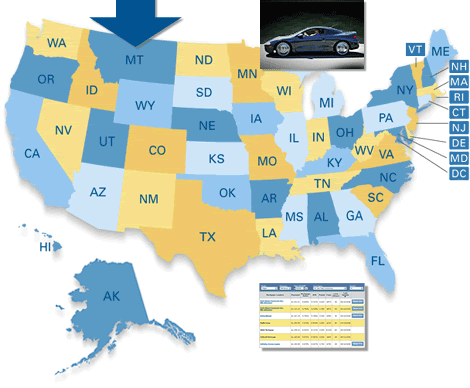Automotive Loans: How Much Car Can You Afford?
by Amy Lillard
(1/8/2013) When applying for a loan, it's easy to go overboard. Whether it's a mortgage, business loan, or car loan, borrowers can easily get in over their heads by overestimating what they can pay each month, and underestimating all the additional costs that go into loans and ownership.
That's why it's important to think through how much you car you can really afford before you go shopping.
First step — determine the highest you can go. Consider your monthly income after taxes and deductions, and take 20 percent of that number. This is the absolute highest you should go. So if you make $2,000 a month after taxes, health insurance costs, and other deductions like retirement savings, the most you should ever pay for a car is $400 a month.
Next, consider the full cost of owning a car. Your monthly payment will include the principal and interest from the loan. But you'll also need to pay for car insurance each month, which can be a substantial figure depending on your car and your credit record. In addition, account for the cost of gas and parking on a monthly basis, which can be higher or lower depending on your commute. In addition to monthly payments, there are also quarterly and annual expenses - license renewal, specific city registration/sticker requirements, and routine maintenance like oil changes. Finally, you'll need to plan for the possibility of repair in case of accidents or even normal wear and tear. This all adds up to much more than just a loan payment, and should be under the limit you set in step 1.
After gaining a more complete picture of the costs of car ownership, now consider your down payment. Generally, the more you can put down in advance as a down payment, the lower your monthly costs will be. Experts advise putting down at least 20 percent of the total cost, which substantially reduces the amount you need to borrow and decreases the total amount you will pay for the car over time. For those that face sticker shock at this amount, know that a down payment does not need to be all cash. A trade-in can be credited as part of a down payment, plus cash rebates that dealers sometimes offer can be put towards this sum.
Finally, after doing this work to understand how much car you can truly afford, the key is to stick to it. It's easy to go over budget during the actual car buying process. To help, arrange financing ahead of time through your bank or online lender to keep you honest. Avoid the extras that car dealers will offer, like rustproofing, protectant, and fabric protection. And arm yourself before by negotiating with the dealer via phone or email. The firmer the offer you can walk in with, the better position you'll be in.
For Additional Reading:
How Much Car Can I Afford? (Calculator)
http://money.msn.com/car-buying/car-loan-calculator.aspx
How to Set a New Car Budget: http://cars.about.com/od/buyingadvice/a/new_car_budget.htm
 A frequent contributor to ERATE® since 2006, Amy Lillard is a freelance writer specializing in turning complex information into useful tips and tricks for readers. For questions or topic suggestions, contact Amy at [email protected].
A frequent contributor to ERATE® since 2006, Amy Lillard is a freelance writer specializing in turning complex information into useful tips and tricks for readers. For questions or topic suggestions, contact Amy at [email protected].
Other related articles:
Automotive Loans: Negotiating a Loan with a Dealer
Automotive Loans: Understanding Typical Loan Language
Automotive Loans: Types of Financing
Automotive Loans: Buying Vs Leasing
Automotive Loans: Applying for a Car Loan
Avoid advertised auto trade-in, loan pay-off rip-offs
Auto sales, loans hit the speedway
High MPGs and low auto loan rates can save you thousands of dollars
Research your options when shopping for an auto loan
How to drive a hardauto loan bargain
Special Report: Hitting the Brakes on Auto Dealer Loans
New and Used Auto Loan Rates
Choose Your State Below

Start by selecting your state

Amy Lillard
The ERATE® Resource Guide to No-Closing-Cost Refinancing
Principal Reduction: New Programs, More Controversy
Understanding Mortgages: Mortgage Paperwork
Understanding Mortgages: Types of Mortgages
Understanding Mortgages: How to Get a Mortgage
Understanding Mortgages: Buy or Rent?
Understanding Mortgages: Working with a Real Estate Agent
Understanding Mortgages: Working with a Real Estate Agent

Automobile Buying/Financing
5 Steps to Find the Perfect Car
Auto loan defaults to rise 7 percent in 2010
Auto Show Season Tips for Buyers
Consumer Reports suspends recommendations for Toyota's recall models
When is the Best Time to Buy a New Car?
Making a Vehicle Purchase? Enjoy These Helpful Tips
Chances are, your next car will be used. Drive a hard bargain
What your car is really saying
2012 President's Day auto sales among best ever
Special Report: Hitting the Brakes on Auto Dealer Loans
Auto Insurance
Buying Ins - Shopping for Insurance
Best Car Insurance Plan for You


